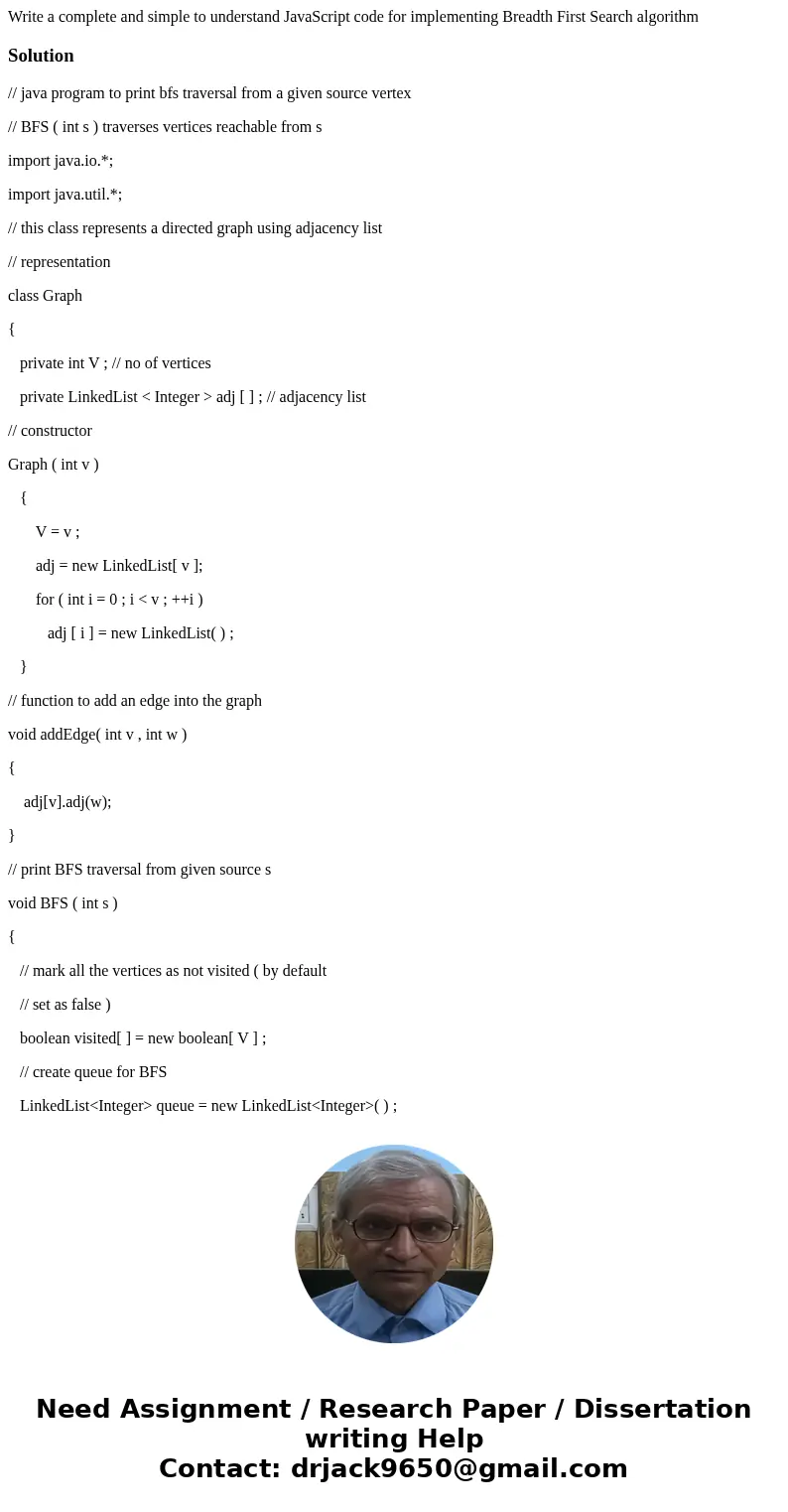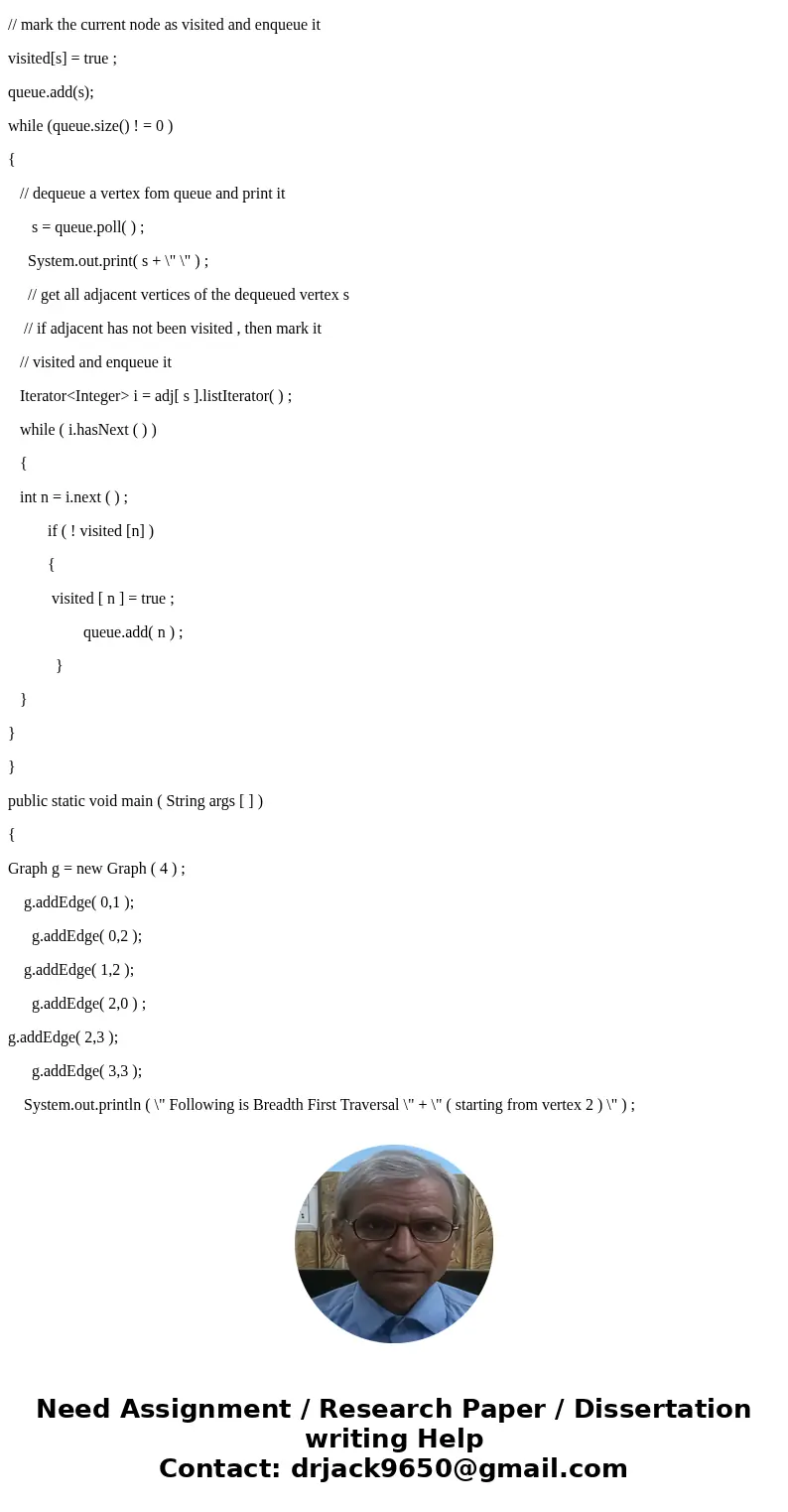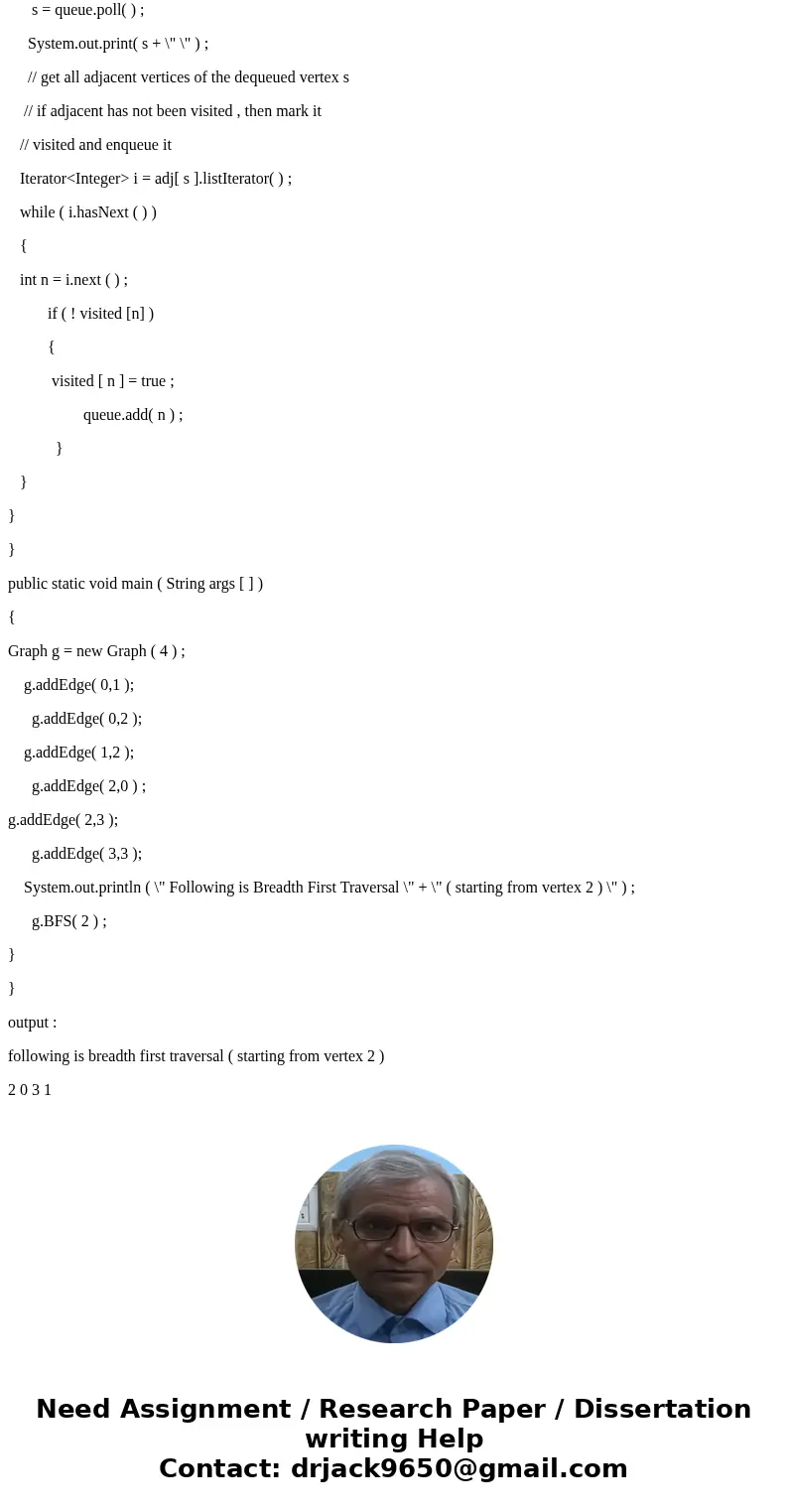Write a complete and simple to understand JavaScript code fo
Write a complete and simple to understand JavaScript code for implementing Breadth First Search algorithm
Solution
// java program to print bfs traversal from a given source vertex
// BFS ( int s ) traverses vertices reachable from s
import java.io.*;
import java.util.*;
// this class represents a directed graph using adjacency list
// representation
class Graph
{
private int V ; // no of vertices
private LinkedList < Integer > adj [ ] ; // adjacency list
// constructor
Graph ( int v )
{
V = v ;
adj = new LinkedList[ v ];
for ( int i = 0 ; i < v ; ++i )
adj [ i ] = new LinkedList( ) ;
}
// function to add an edge into the graph
void addEdge( int v , int w )
{
adj[v].adj(w);
}
// print BFS traversal from given source s
void BFS ( int s )
{
// mark all the vertices as not visited ( by default
// set as false )
boolean visited[ ] = new boolean[ V ] ;
// create queue for BFS
LinkedList<Integer> queue = new LinkedList<Integer>( ) ;
// mark the current node as visited and enqueue it
visited[s] = true ;
queue.add(s);
while (queue.size() ! = 0 )
{
// dequeue a vertex fom queue and print it
s = queue.poll( ) ;
System.out.print( s + \" \" ) ;
// get all adjacent vertices of the dequeued vertex s
// if adjacent has not been visited , then mark it
// visited and enqueue it
Iterator<Integer> i = adj[ s ].listIterator( ) ;
while ( i.hasNext ( ) )
{
int n = i.next ( ) ;
if ( ! visited [n] )
{
visited [ n ] = true ;
queue.add( n ) ;
}
}
}
}
public static void main ( String args [ ] )
{
Graph g = new Graph ( 4 ) ;
g.addEdge( 0,1 );
g.addEdge( 0,2 );
g.addEdge( 1,2 );
g.addEdge( 2,0 ) ;
g.addEdge( 2,3 );
g.addEdge( 3,3 );
System.out.println ( \" Following is Breadth First Traversal \" + \" ( starting from vertex 2 ) \" ) ;
g.BFS( 2 ) ;
}
}
output :
following is breadth first traversal ( starting from vertex 2 )
2 0 3 1



 Homework Sourse
Homework Sourse